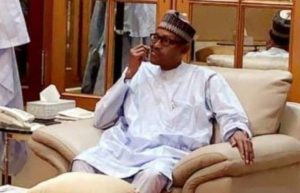If the present federal government were able to do so, it could have you not just pay for, but also add premium tax on the air you breathe. Afterwards, the government would possibly blame it on the so-called mess caused by past administrations, particularly that of the Peoples Democratic Party.
If you were old enough to have listened to or even come across the coup speech of late Brigadier Joshua Nimyel Dogonyaro announcing the ouster of the Buhari military government on August 27, 1985, you would bet that little has changed with a Buhari at the Aso Rock Villa.
Instead, Nigerians have been so impoverished with the cost of living going way beyond their reach as the government daily churns out very harsh and wicked policies with hardly anything on the ground to cushion the effects on the masses.
Today, it would appear like the government’s sole purpose is to accomplish whatever agenda was cut short in 1985. Or how do you describe a government that wittingly or otherwise looks the other way as essential commodity prices are way beyond the reach of the ordinary people? Would it be wrong to say that the present government is a classical example of taking everything away from the have-nots and enriching the already advantaged?
Most annoying is that in this apparent broad daylight robbery of the poor, the same government mounts the podium at the slightest opportunity to sing of the imaginary lifting of 100 million Nigerians out of poverty in 10 years.
While the cost of practically everything is rising per second, the same government under whose watch we have seen job losses, pay cuts, non-payment of salaries would, in addition, be squeezing what is left of the people’s lives with an increase in levies, duties, taxes, tariffs and just anything you can think of.
And wait for this, the system is such that while those in government keep looting the commonwealth dry, they still hardly pay for any of the services for which the poor pay through the nose.

From the increase in electricity bill, pump prices of petroleum products, to even cutting down on the interests accruing to bank savings, while on the other hand wantonly increasing the interest you have to pay on loans, to the introduction of road tolls, the Buhari government is detached from the yearnings and aspirations of the people.
For instance, in addition to the numerous harsh policies that have not been of any good to the majority of the populace, the federal government announced, just days ago, a reintroduction of the toll collection system on selected dual motorways across the country.
Although tagged a new open road policy, meaning that the collection of tolls on roads will be without the use of toll booths, that is, some sort of an all-electronic tolling or cashless tolling system, those in government that live extravagantly on the sweat of the masses will, as usual, most likely be exempted from paying this toll.
It is noteworthy that the return of road tolls comes almost two decades after former President Olusegun Obasanjo’s administration dismantled all toll gates on federal highways.
Besides that and after the long grammar on the new arrangement, Minister of Works and Housing, Babatunde Fashola, said on August 11, that the new development would see vehicles paying between N200 and N500 toll per trip, depending on the vehicle type. Diplomats, military, para-military as well as tricycles and motorcycles would be exempted from the scheme.
Add this development to the issue of cooking gas, among many others, and you wonder how an average Nigerian survives under the circumstance. With the re-imposition of the cooking gas tax, Nigerians should brace themselves to pay up to N10,000 for a 12.5Kg cylinder.
Already, prices of cooking gas across the country have skyrocketed, which would further worsen with taxation. And to think the same Buhari government had, in 2019, announced the removal of VAT on the liquefied petroleum gas (LPG), also known as cooking to increase its domestic utilization, speaks of policy summersaults.
What chokes the most is the speed with which market prices increase. For instance, the 12.5kg cylinder now going for about N7,000, sold for about N4,000 on average a few months ago. In all of this, hardly are workers’ salaries increased. Instead, jobs are lost, daily; salaries are either cut or being owed, sometimes running into months. Worse still, there are hardly any vacancies for fresh graduates, except the children of members of the ruling elite. Or if you know someone in government.